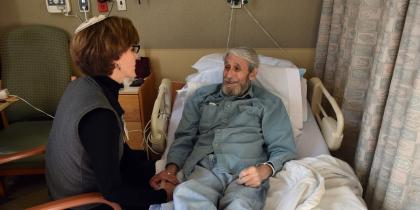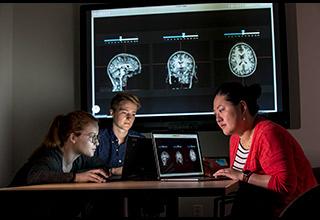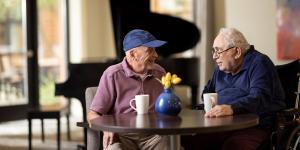10 Tips to Reduce Delirium Risk in Hospitalized Older Loved Ones

Delirium is a state of confusion that develops suddenly, often following an acute medical illness, a surgical procedure or a hospitalization. Although delirium is estimated to complicate hospital stays for more than 2.5 million older adult patients in the U.S. each year, this common condition often goes undetected. The end result can be serious complications with sometimes devastating consequences for vulnerable hospitalized elders.
I have been studying delirium for 30 years. For a large proportion of older patients, the problem of delirium is never resolved. I routinely hear from patients’ families, “They went into the hospital, they became very confused, and they never recovered.”
My research has shown, however, that there are steps families and caregivers can take to help prevent or reduce risk factors for delirium in older hospitalized patients.
- Bring a complete list of all medications (with their dosages), as well as over-the-counter medicines to the hospital. It may help to bring the medication bottles as well.
- Prepare a “medical information sheet” listing all allergies, names and phone numbers of physicians, the name of the patient’s usual pharmacy and all known medical conditions.
- Forward pertinent medical records to the doctors who will be caring for the patient.
- Bring glasses, hearing aids (with fresh batteries), and dentures to the hospital. Older persons do better if they can see, hear and eat.
- Bring in a few familiar objects from home. Things such as family photos, a favorite comforter or blanket for the bed, a beloved book and relaxation tapes can be quite comforting.
- Help orient the patient throughout the day. Speak in a calm, reassuring tone of voice and tell the patient where he is and why he is there.
- When giving instructions, state one fact or simple task at a time. Do not overwhelm or over stimulate the patient.
- Massage can be soothing for some patients.
- Stay with the hospitalized patient as much as possible. During an acute episode of delirium, relatives should try to arrange shifts so someone can be present around the clock.
- If you detect new signs that could indicate delirium symptoms — confusion, memory problems, personality changes — it is important to discuss these with the nurses or physicians as soon as you can. Family members are often the first to notice subtle changes.
Download a brochure about delirium to learn more.
Blog Topics
Learn More
Coping with Memory Loss
From our Wolk Center for Memory Health to our Adult Day Health program to Assisted Living to Memory Care Assisted Living, we offer a wide range of memory care services and support.
Research on Aging
At the Hinda and Arthur Marcus Institute for Aging Research, Harvard Medical School-affiliated researchers are working to uncover answers to some of the most pressing challenges of aging.





